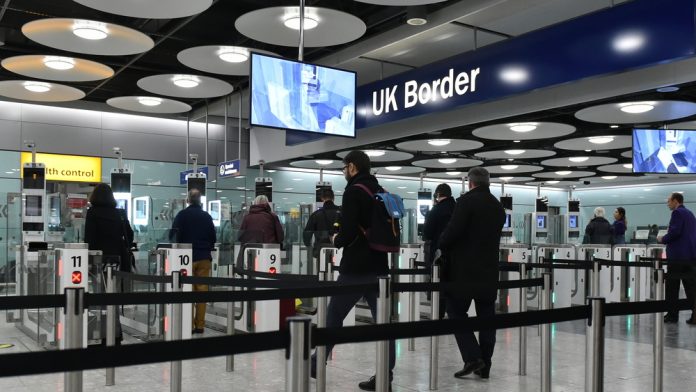Net migration to the UK dropped sharply in 2016, prompting business groups to warn on the economic effect of a slowdown in immigration.
Net migration to the UK was estimated to be 248,000 in 2016, a higher-than-expected fall of 84,000 from 2015. According to the Office for National Statistics, the change was driven by “a statistically significant” increase of 40,000 people leaving the country, most of which were EU citizens.
The drop in immigration is in part due to 25,000 fewer Poles and other eastern Europeans moving to Britain for work, likely due to the uncertainty of their futures in the UK in the way of the British decision to leave the European Union.
Theresa May reintroduced the vow to reduce migration to 100,000 in the Conservative manifesto ahead of the June General Election. However, she has reportedly been forced to reconsider the inclusion of foreign students in her immigration figures – which would significantly lower the immigration total – and will likely offer a “regulatory compromise” in how the number of overseas students in Britain are calculated.
Sarah Stevens, the head of policy of the Russell Group of universities, told the Guardian:
“We would be concerned if this national trend reflected a loss of talented EU staff working in UK higher education due to uncertainty over their future rights. As a priority, government should confirm that existing work and residency rights will be protected.
“This would help make clear that current EU nationals are welcome in the UK. In the longer term, we need an immigration regime which ensures UK universities can recruit and retain talented staff and students from across the EU and more widely without bureaucratic visa burdens.”

